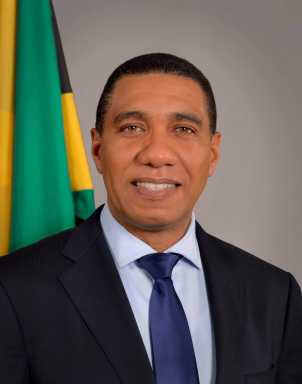Listeners:
Top listeners:
-
play_arrow
RadioJLR Just Press Play
Prime Minister Andrew Holness’s administration says it is ready to table a bill to dump the British monarchy, make Jamaica a republic, and install a local head of state instead of King Charles.
However, the road to achievement remains in grave doubt because the main opposition party also wants the bill to retire the British Privy Council as the island’s final court. This clause is glaringly absent from the document.
Minister of Legal Affairs Marlene Malahoo Forte told fellow lawmakers on Tuesday that the constitutional amendment of the Republic of Jamaica bill is ready for tabling as early as next week following at least six revisions of drafts in recent months.
The bill will amend the constitution to allow for a Jamaican head of state, a switch to a republic like Guyana, Trinidad, Dominica, and Barbados, and do away with the British monarch as the sovereign power over the island.
“When passed into law, the bill will allow for the constitution of Jamaica to be put in proper form as the supreme law of the land,” Malahoo Forte said.
“I am pleased to inform this honorable house and the people of Jamaica that the review of the constitutional amendment bill is far advanced. It is quite possible to complete the remaining steps for the bill to be tabled as early as next week, before the Christmas break,” she said.
But as expected, ominous signs have again emerged from the opposition side of the house as People’s National Party (PNP) Leader Mark Golding repeated perennial warnings that the effort would not have bipartisan support unless the Privy Council is abolished and replaced by the Trinidad-based Caribbean Court of Justice (CCJ).
The governing Labor Party (JLP) has repeatedly staunchly opposed any move to the CCJ as the island’s apex court, saying it prefers rulings from judges in a faraway land unaffected by their presence in the Caribbean.
Instead, it promised to address the CCJ issue during the next phase, even though polls show that it will likely lose the general elections scheduled for next year. Golding says he does not hold out any hope for the passage of the amendment as labor remains stubborn and steadfast in keeping the Privy Council.
“This is a situation where one hand simply cannot clap, and without the support of this side, this process is going nowhere. And we have put on the table issues of real concern and unless those are addressed, our support is not guaranteed,” he said, reminding the house that not much can change without opposition support.
The minister, however, appealed for opposition support, saying that “at this juncture, it cannot be about how we feel because of where we are in the life of the parliament. There is still enough time to get it now, and if we give up now, it will betray what we hope to achieve and the goals we have set as a nation. Where we are in the life of this parliament and with regard to the constitutional timelines, the work will not be completed in this parliament. However, in its wisdom, the constitution allows for the work to be done over the life of more than one parliament.”
Like quite a few other CARICOM member states, the road to amending the constitution to do away with British vestiges is a rather complex one, as the minister told the house as two separate three-month time lapses must be observed between the bill’s first reading and the start of the initial discussion.
The three-month requirement also applies to the time after the debate is concluded and its passage in the house. Both houses must also vote at the level of two-thirds of all members to seal the deal. A referendum is also required to complete the process.
Authorities have been touring the country in recent years, consulting with the electorate about these significant changes, and Golding says the opposition has been largely ignored in this area.
Similar posts
© 2025. All Rights Reserved by Radio-JLR




Post comments (0)